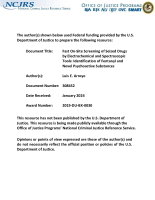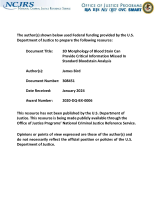Rapid screening for smokeless powders using DART-HRMS and thermal desorption DART-HRMS
Journal
Forensic Chemistry
Date Published
May 2019
Agencies
NIJ-Sponsored
Publication Type
Research (Applied/Empirical)




